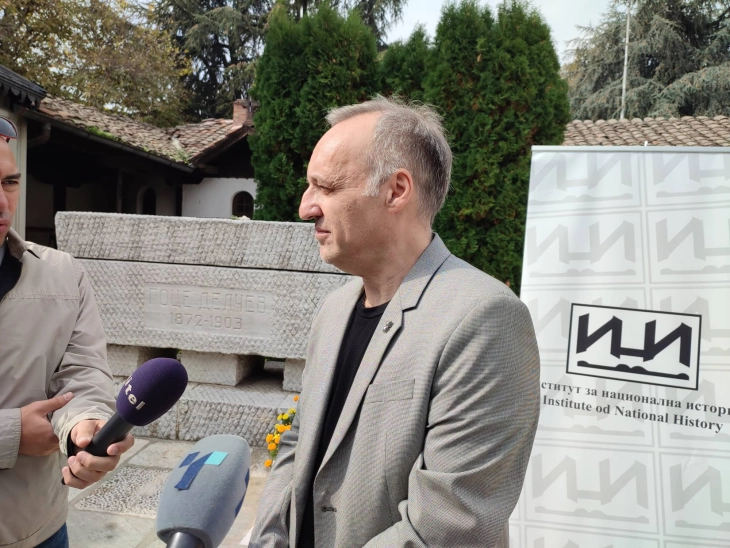Use of names of Tsar Boris III, Tsar Ferdinand to show common history up to 1944 is tendentious: historian

Skopje, 10 October 2022 (MIA) – Historian Mitko Panov from the Institute for National History said the use of the names of Tsar Boris III, as well as a new association of the Bulgarian community in the country under the name of Tsar Ferdinand aims to connect Bulgaria’s history with North Macedonia, and to show that they have a common history from the Middle Ages to 1944, which obviously has a political dimension. He added that as a victorious country in the anti-fascist war, North Macedonia should set an example and firmly condemn all such tendencies that bring back the dark past, and demonstrate respect for the values of post-war Europe.
“It is a tendency that in some way intends to connect Bulgaria’s history with Macedonia. Ferdinand and Boris III are a symbol of the occupation of Macedonia, one in World War II – Boris, and Ferdinand in the World War I, and the symbolism is the one with which Ferdinand in fact unites the so-called two kingdoms in Bulgaria, when he was proclaimed tsar in 1908, and thus the tradition is created with the Bulgarian leadership, now I can't say the Bulgarian leadership, but obviously there is some political dimension here,” Panov said in response to a reporter’s question about the use of the controvesrial names of Tsar Boris III and Tsar Ferdinand for registering associations.
According to Panov, precisely figures that symbolize such wars, suffering, which in some way have a negative undertone, particularly Boris III in terms of fascism, should be firmly sanctioned by the state, regardless of whether it is necessary to have some kind of legislation.
He believes that the reaction of the state institutions was late when it comes to the opening and registration of such cultural centers with provocative names.
Asked if he thinks that such developments will be reflected in the relations between Bulgaria and North Macedonia and in the further negotiations, he said he holds to his scholarly position.
“I wouldn’t go into that, because it is a political relation. I speak as a scholar who follows these tendencies historically and in a way I react from that aspect, because I know the genesis of the Bulgarian politics from the 19th century and how it is now projected in the present in order to realize those agendas that have nothing to do with good neighborly relations, and even less with the science,” Panov said after Monday’s event on awarding prizes to works commemorating 150 years since Goce Delchev’s birth.







